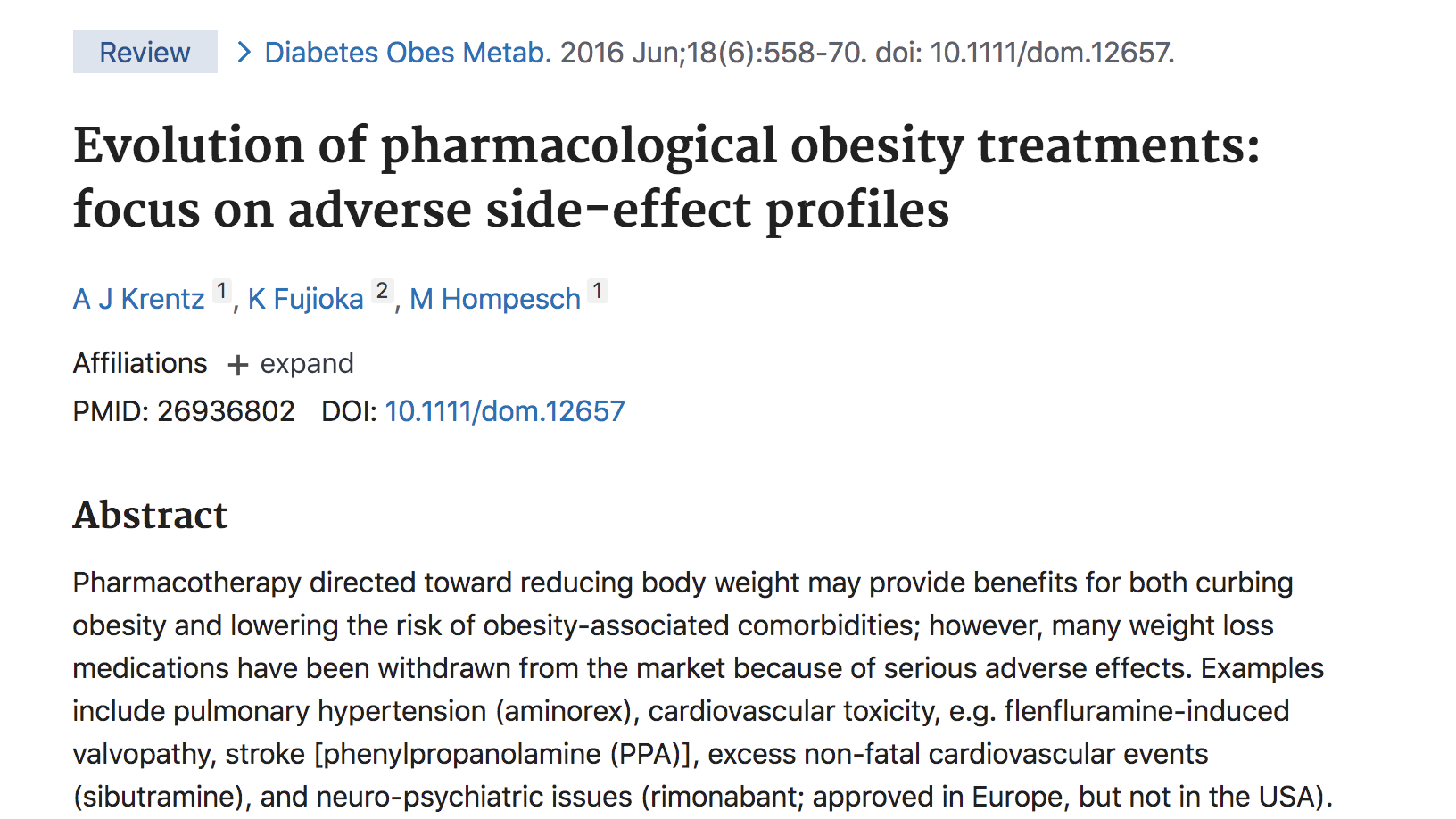About This Article
Pharmacotherapy directed toward reducing body weight may provide benefits for both curbing obesity and lowering the risk of obesity-associated comorbidities; however, many weight loss medications have been withdrawn from the market because of serious adverse effects. Examples include pulmonary hypertension (aminorex), cardiovascular toxicity, e.g. flenfluramine-induced valvopathy, stroke [phenylpropanolamine (PPA)], excess non-fatal cardiovascular events (sibutramine), and neuro-psychiatric issues (rimonabant; approved in Europe, but not in the USA). This negative experience has helped mould the current drug development and approval process for new anti-obesity drugs. Differences between the US Food and Drug Administration (FDA) and the European Medicines Agency, however, in perceptions of risk-benefit considerations for individual drugs have resulted in discrepancies in approval and/or withdrawal of weight-reducing medications. Thus, two drugs recently approved by the FDA, i.e. lorcaserin and phentermine + topiramate extended release, are not available in Europe. In contrast, naltrexone sustained release (SR)/bupropion SR received FDA approval, and liraglutide 3.0 mg was recently approved in both the USA and Europe. Regulatory strategies adopted by the FDA to manage the potential for uncommon but potentially serious post-marketing toxicity include: (i) risk evaluation and mitigation strategy programmes; (ii) stipulating post-marketing safety trials; (iii) considering responder rates and limiting cumulative exposure by discontinuation if weight loss is not attained within a reasonable timeframe; and (iv) requiring large cardiovascular outcome trials before or after approval. We chronicle the adverse effects of anti-obesity pharmacotherapy and consider how the history of high-profile toxicity issues has shaped the current regulatory landscape for new and future weight-reducing drugs.



